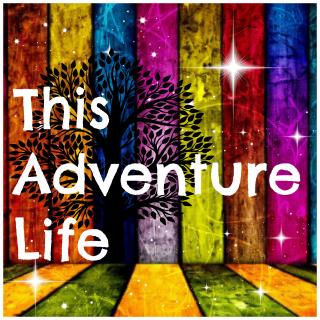Lesson Planning 2011 Part 2: The Core
 I consider ‘core’ the basic three: reading, writing and math; plus language arts (which includes phonics, spelling and grammar), science and history. Our daily schedule usually has all the above daily, with science or history on alternating days.
I consider ‘core’ the basic three: reading, writing and math; plus language arts (which includes phonics, spelling and grammar), science and history. Our daily schedule usually has all the above daily, with science or history on alternating days.
In my last post on this topic, I wrote about using the ‘complete’ workbooks as a guide. I really liked the math sections for both 2nd and 3rd grade in the HB series, and I think we’re going to go ahead and get them. We’ll still be using MEP as our main math, but the wkbk would be nice to supplement with, especially on days where I need an easy day!
We’ve pretty much given up on Saxon Math. I know some love it, but it’s just too overwhelming for me to use. We’re still using bits and pieces from it like the morning meeting, the daily problems and warm-up, problem or concept of the day – stuff like that, but as our main squeeze, I’m ditching it. We’ll also be using Math Mammoth, Lesson Pathways and Khan Academy videos for new concepts, and plenty of manipulatives for illustration and repetition. We’re still math journaling to keep track of math work and to serve as our weekly review. If you haven’t seen Integer Jim’s math journals, then do check them out – they’re something to aspire to!
The all-in-one workbooks also have spelling and LA, but I don’t know how much of that we’ll really use. We’ll be going back to doing an individual spelling lesson this year; I’ve let it slide as a stand-alone subject in favor of working on it through writing. That’s been going well and I think that my plan for this coming year falls into line with that method rather than the ‘learn this list’. My kids both have a hard time with spelling, so we’re going to go ‘old school’… as in, to the 1960’s. I have Power 2 Spell and Dr. Spello (this is 4th ed.; mine is 2nd edition and from 1968, but the table of contents list is the same). LBB has auditory issues, so I am hoping that going through this workbook will help him with slowing down his thinking a bit and really listening. Once we’re done with Dr. Spello, we’ll move on to Power to Spell 2. It’s a second grade level book, but I think they’ve ‘dumbed down’ the spelling words over the years. I have a more recent spelling textbook for 3rd grade and the words in it are less challenging than the ones in PtS2. In any case, both books focus on ‘hearing’ sounds and connecting them with the letter that represents that sound. I haven’t been able to find a link to the Power to Spell book that I have, but this is it:

I used printouts from SuperTeacherWorksheets.com for LA concepts this past year; I’m hoping that the workbook will help provide more direction for this coming year. One of the things I liked about Charlotte Mason style and about Moving Beyond the Page’s ‘year overview’ was that LA, science and history are taught in conjunction with literature; using the reading selections to highlight, illustrate or expound upon the lesson. I’d like to work towards that more this year.
For our main LA curriculum, we’re considering using English Maven in addition to the workbook’s LA section. EM is computer-based, which appeals to my boys, esp LBB. We’ve also been using KISS grammar to some extent, but it is hard to navigate and use without an extensive read-through and exploration before use. Once you’re used to it though, it’s a good (if incomplete for all grades) program. Honestly, I think that the biggest helper for my kids in grammar and LA concepts has simply been reading. The Core Knowledge books also have a good overview of literature and skills by grade, so we’ll make sure to cover those as well.
The boys spend at least half an hour reading every day and when we started homeschooling, I was reading to them every day as well. We’ve gotten away from that, so I really want to focus back on that as well. I’ve noticed a marked improvement in both of the boys’ reading skill since we’ve been homeschooling. We started reviewing basic reading skills and they’re taken off since then. I use some of the reading assessment tools from A-Z Home’s Cool Homeschooling to check their progress. I don’t know how ‘accurate’ they are, but it gives us a starting point at least.
The writing stuff will be a challenge. Both boys are great at dictating their thoughts, not so much at writing them down. This is an age thing, I believe, and we’ll be working on developing and improving both handwriting and writing skills more this year. We started cursive with LBB in M5 last year; PG is still working on D’Nealian print. We’re using Handwriting Practice books, along with custom-printed worksheets that I make (themed relevant to something we’ve been working on or will do). The boys both have email addresses and blogs for journaling online. We haven’t been as diligent on that as we might have been, but the goal for this coming year will be at least one blog per week. (Contact me for the link to their blogs. If you have a homeschooler who is looking for a pen pal, we can chat about that, too.) Journal prompts and handwriting worksheets also come from SuperTeacherWorksheets and whatever I may think of or they come up with to write about. For 2011′s school year, we will be focusing heavily on handwriting, note-taking and constructing paragraphs and reports in addition to daily practice.
Moving on…
I find science and history to be both extremely challenging and laughably easy to ‘teach’. I find it very easy to integrate both into the curriculum just through everyday ‘stuff’ – field trips are usually science themed and the world around us presents so many opportunities for delving into both of those subjects. That said, I find it hard to measure where they are because we’re not really using a linear system of learning. Not that that’s a huge issue or anything, but I am considering moving back to a more structured model for this year. Yes, I realize that this is more for my own need to quantify rather than a real ‘need’ for structure in these areas, but that’s how I roll. {wink}
For science, I am considering getting Spectrum’s 3rd grade workbook to use as a spine. I have our ISD’s science text books for 1-3rd grade (I found them at Goodwill), but they’re SO BORING, and quite frankly… simple. My boys are way past that level, so we need something a little more in-depth. I really like Moving Beyond the Page’s idea of integration of science and history into the LA work, so my plan is to work on doing that this year. I’ve also gushed about Super Science Concoctions in the past, and continue to extol its virtues. Fast, easy and fun; we’ve never been disappointed. I also have Jr. Boom Academy, which is similar to SSC and just as fun, as well as a variety of subject specific science books by Rosemary Althouse and Cecil Main (magnets, water, air, food, as we grow, colors) that have experiments and explanations of ‘how this works’ that we can incorporate into lessons this year as needed.

History ‘worked into everyday’ is easy. History as a ‘systematic course of study’ is more challenging. I really like The Well Trained Mind’s idea of history in stages; we’re current with 3rd grade (Late Renaissance – Early Modern (1600-1850) and will continue in that vein. MacroHistory has sectioned links that are great for timeline-making; we’ll be starting our scroll version this year. Mosaic, using SWB’s Story of the World was recommended to me; but SOTW seems to be pretty faith-based and I prefer not to use it. Also, there are three volumes (and several versions) of SOTW, so it’s confusing. Mosaic can also be used with Gombrich’s A Little History of the World; I’m finding that A Short History of the World by Alex Woolfe mostly works too. Again, the Core Knowledge books and the all-in-one will have some contributions to our curriculum this year; it will be as we get started that I determine how much of what we’ll actually use on a regular basis.
Learning Tools
A word about worksheets: they really don’t work for us – not in the traditional sense, anyway. We usually do them together, aloud and on the chalkboard (we have a 5′ long school chalkboard in our schoolroom). I may write the actual problem from the worksheet on the board or re-work it into pictures or symbols, or I may get the kids to write the problem or question out. I use the sheet to record answers and take notes from the lesson, and then file the sheet.
Lapbooks: We’ve been working on lapbooks for the last few months and will continue throughout this year, supplementing almost every subject with lapbooking fun. I love HomeschoolShare.com’s lapbook templates and unit studies. They’re easy to combine and mix-and-match as needed. HomeschoolHelperOnline also has a list of lapbooks, and you can’t help but be in awe of the resource list at Eclectic Education! KickButtMama’s master list of free printables is really spiffy, too. Practical Pages Lapbook Pages and Jimmie’ s Collage Minibooks also have a bunch of nifty templates that you can print, cut and keep handy for lapbooking on the fly.
Manipulatives: we use file folder games I have this book), computer games, diagrams, lapbooks, flash cards, puzzles, math manips (like tiles, geoboards, marbles, playing cards, stones, legos, abacus, fraction tiles, math mini-office, etc.), maps, posters, crafts and projects – literally ANYTHING that I find or the boys show an interest in to make learning fun, exciting, engaging and memorable. Sometimes, we find things that we enjoy, sometimes we decide in the middle of something that this is not for us and chuck it in favor or attacking the lesson from a different perspective. It’s all about trial and error and keeping an open mind.
I’d also like to recommend Topsy’s A Few of My Favorite (Secular Homeschooling) Things article from a few weeks ago at SecularHomeschool.com. Some of the resources listed there are too old for my boys, but I’m keeping them in mind for later.
Whew! That is a LONG list of stuff! I’ve been working on this post for weeks now and I am glad it’s all lined out. I’m sure I’ll be tweaking this more, adding and shelving things as we go, and I will have an ‘M1 Lesson Planning’ post with more detailed lists for the first 4 weeks going up as well. Up next: Lesson Planning 2011: The Extras!
If you’re lesson planning for next year, feel free to link to your blog in the comments so I can poke around!
Warmly,
~h












Pingback: Lesson Planning 2011 Part 1: The Overview « This Adventure Life
We are excited to see you are incorporating LessonPathways.com into your homeschool lessons. If you have any questions, please feel free to email me at ContactUs@LessonPathways.com.
Stop by our Facebook page for more education inspiration!
-Christina S.
LessonPathways.com
December 20, 2010 at 9:34 pm